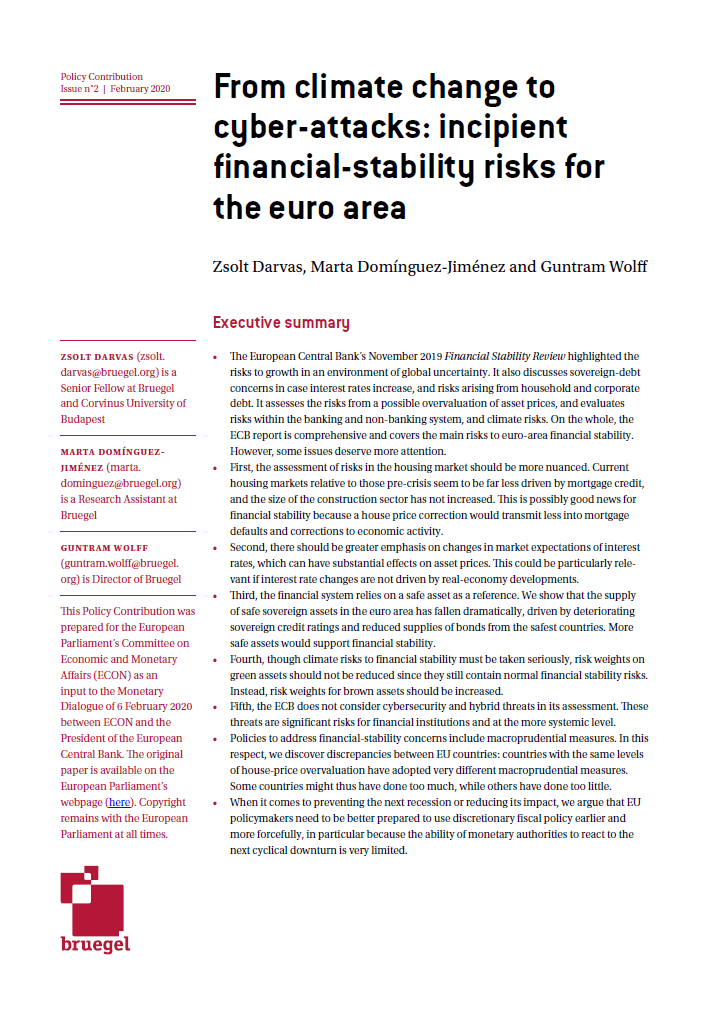Policy Contribution
From climate change to cyber attacks: Incipient financial-stability risks for the euro area
The European Central Bank’s November 2019 Financial Stability Review highlighted the risks to growth in an environment of global uncertainty. On the whole, the ECB report is comprehensive and covers the main risks to euro-area financial stability, we highlight issues that deserve more attention.
This Policy Contribution was prepared for the European Parliament’s Committee on Economic and Monetary Affairs (ECON) as an input to the Monetary Dialogue of 6 February 2020 between ECON and the President of the European Central Bank. The original paper is available on the European Parliament’s webpage (here).
Copyright remains with the European Parliament at all times.
• First, the assessment of risks in the housing market should be more nuanced. Current housing markets relative to those pre-crisis seem to be far less driven by mortgage credit, and the size of the construction sector has not increased. This is possibly good news for financial stability because a house price correction would transmit less into mortgage defaults and corrections to economic activity.
• Second, there should be greater emphasis on changes in market expectations of interest rates, which can have substantial effects on asset prices. This could be particularly relevant if interest rate changes are not driven by real-economy developments.
• Third, the financial system relies on a safe asset as a reference. We show that the supply of safe sovereign assets in the euro area has fallen dramatically, driven by deteriorating sovereign credit ratings and reduced supplies of bonds from the safest countries. More safe assets would support financial stability.
• Fourth, though climate risks to financial stability must be taken seriously, risk weights on green assets should not be reduced since they still contain normal financial stability risks. Instead, risk weights for brown assets should be increased.
• Fifth, the ECB does not consider cybersecurity and hybrid threats in its assessment. These threats are significant risks for financial institutions and at the more systemic level.
• Policies to address financial-stability concerns include macroprudential measures. In this respect, we discover discrepancies between EU countries: countries with the same levels
of house-price overvaluation have adopted very different macroprudential measures. Some countries might thus have done too much, while others have done too little.
• When it comes to preventing the next recession or reducing its impact, we argue that EU policymakers need to be better prepared to use discretionary fiscal policy earlier and more forcefully, in particular because the ability of monetary authorities to react to the next cyclical downturn is very limited.











